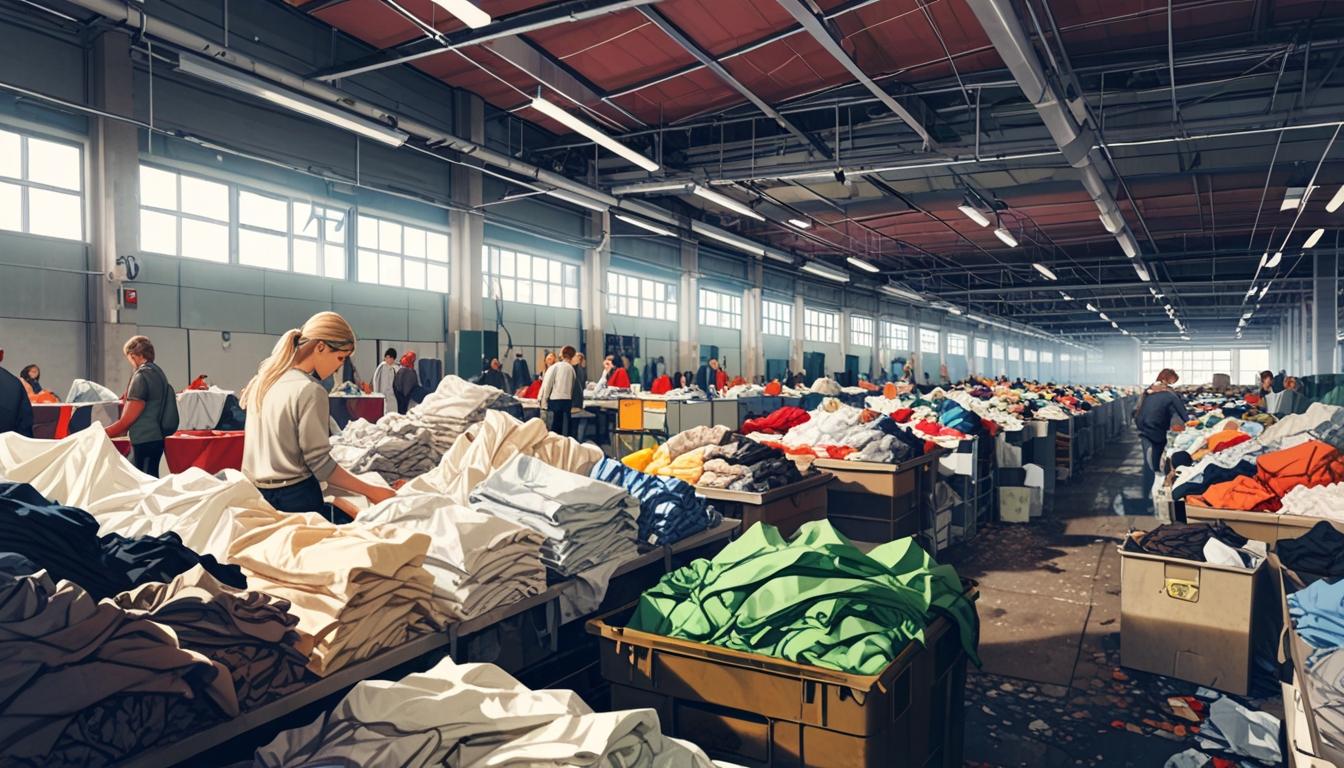As the EU implements a ban on textile disposal, Sweden faces challenges in managing overwhelming waste, prompting calls for accountability from fast fashion retailers.
Sweden is facing a significant challenge in managing an influx of discarded textiles following a European Union-wide ban on the disposal of such materials, which was implemented at the beginning of this year. With the new regulations in place, Swedish recycling facilities are overwhelmed, leaving communities seeking accountability from major fast fashion retailers.
The prohibition mandates EU member states to enhance their recycling efforts specifically for textiles, in addition to their existing programs for glass, paper, and food waste. The aim is to promote a circular waste management system by sorting and reusing textiles as much as possible. According to the goal outlined within the initiative, approximately 60–70 percent of the textiles collected are expected to be reused, while the remaining 20–30 percent will be processed into composite materials, padding, or insulation.
Statistics from the Swedish Environmental Protection Agency indicate substantial progress in waste management practices, with about seven to ten percent of discarded textiles being incinerated for energy—a marked improvement compared to the previous method of routinely setting fire to old garments before the enforcement of the new regulation. However, the inadequacies of Sweden’s recycling infrastructure mean that a large proportion of used textiles is still exported, primarily to Lithuania, where it is sorted and either recycled or incinerated for energy recovery.
On a national scale, the situation remains pressing. The Swedish Society for the Conservation of Nature reports that Swedes dispose of approximately 90,000 tonnes of textiles annually, averaging around ten kilograms per person. Notably, the European Environment Agency noted that figures for the average textile waste per inhabitant in the EU increased from 17 kilograms in 2019 to 19 kilograms in 2022.
The responsibility for sorting these textiles now lies with municipalities, many of which are confronting the repercussions of an overwhelmed system due to the increased volume of textiles stemming from the regulated ban. In some cases, particularly in less populated northern regions of Sweden, local authorities resort to burning textiles because they lack viable buyers for the material.
As the EU pushes for enhanced corporate responsibility, stakeholders are looking towards influential fast fashion retailers such as Zara and H&M to take part in alleviating the waste they generate. Current discussions at the European level are focused on ensuring that these clothing giants are held accountable for the lifecycle of the products they sell. Proposed agreements, which were negotiated by EU member states in February, suggest that these companies will be responsible for the collection, sorting, reuse, and recycling of their products at the end of their lives.
Source: Noah Wire Services




